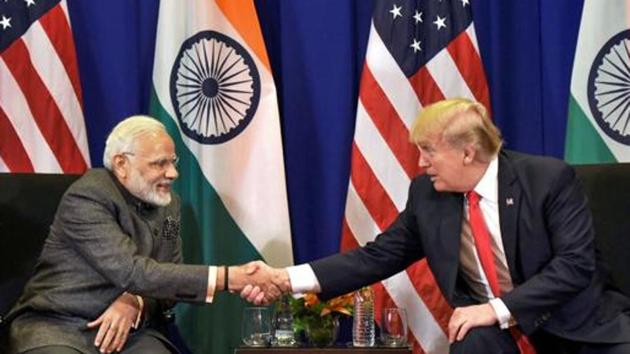In Afghanistan, India’s soft power is not enough | Analysis
India’s aspirations of becoming a superpower must first begin with establishing itself as a strong regional power
United States (US) President Donald Trump, who recently willingly stepped into the India-Pakistan complexities after his meeting with Pakistan’s Prime Minister, Imran Khan, has now also asked New Delhi to be part of the fight against ISIS (or IS) in Afghanistan.

This comes at a time when the Trump administration, by all accounts, is close to agreeing upon some sort of deal with the Taliban to end the war before the US elections next year. If so, it’s a possibility that, in the near future, the Taliban could be sitting in the Afghan parliament, one that India built and inaugurated in 2015.
In 2019, IS has managed to create a sense of paranoia in South Asia. The Easter bombings in Sri Lanka, which killed over 250 people, and was claimed by ISIS, came as a rude shock. The bombings showed the versatility of the group’s propaganda, since it remains possible that its hierarchy might not have even been aware of the Sri Lanka plot. IS chief Abu Bakr al-Baghdadi, in a rare video message, accepted the pledge of the Easter bombers on April 29, eight days after the attacks. In this video, Baghdadi had also accepted the pledge of IS in Afghanistan, officially designating it as a wilayah (administrative division).
The Afghan jihad theatre is going through a transition, with multiple forums of “peace talks” having taken place. The Taliban itself, via their office in Doha, has also held talks with the likes of Russia and China. New Delhi, however, has remained adamant on its approach to these developments, choosing to officially stay away from any talks with the Taliban and maintaining its “no good terrorist or bad terrorist, a terrorist is a terrorist” modus operandi.
While perhaps an admirable conviction, this longstanding policy has turned out to be the biggest thorn in India’s Afghan outreach. The years’ worth of economic and soft power bonhomie seems to have brought India only a certain level of leverage, as it remained on the sidelines while both the US-Taliban negotiations, and the expected intra-Afghan dialogue to bring through consensus domestically, went ahead without Indian concerns being at the centre.
India’s position has been that its goodwill in Afghanistan, and among the Afghan people, has largely been due to its non-interventionist approach. This includes not deploying boots on the ground, or conducting counterterror activities directly or indirectly. In short, it relied on the US and its NATO allies on two major fronts — first, conducting military operations against the Taliban, al Qaeda and now IS, and second, expecting Washington to only leave once the job is finished.
America’s current call for India, along with other countries, to help carry the burden of the Afghan conflict is in fact not new, and was presented by both the Bush and Obama administrations as well. ISIS Khorasan (IS-K) is a group with many identities. Antonio Giustozzi, the author of The Islamic State in Khorasan, describes how IS in the country is also divided, with influence from various other State and non-State actors being prevalent within its hierarchies, including fighters who directly came from Syria. Others range from Tajiks, Uzbeks and former Tehrik-e-Taliban Pakistan Pashtun fighters, who were forced to cross over from Pakistan’s tribal belts after Operation Zarb-e-Azb by Pakistani armed forces between 2014 and 2016. Reports also suggested that rifts were created within IS-K during this period over some of its leaders cozying up to Pakistani intelligence agencies, which provided cash and weapons, seen by some IS purists as betrayal of the original mandate of the caliphate and the group.
However, along with IS, it is imperative to remember that Afghanistan was in fact the original stronghold of al Qaeda, where Osama bin Laden found refuge under the protection of the Taliban. al Qaeda till date possesses a stronger hierarchy and institutionalised structure as it works to regain space and narrative it lost to IS’s online propaganda juggernaut over the past three years. In fact, Abu Musab al-Zarqawi, IS’s ideological Yoda was the chief of al Qaeda in Iraq under the ambit of bin Laden much before IS came to be.
India sat on its morals for far too long in Afghanistan. There is little point to soft power if you cannot back it with hard power to protect your interests. India’s aspiration of becoming a superpower must first begin with establishing itself as a strong regional power. Trump’s question to India should in fact force introspection on Raisina Hill about India’s own approach in a fast-evolving global war against terrorism, where States often find themselves two steps behind the likes of IS.
Kabir Taneja is associate fellow, Strategic Studies Programme, Observer Research Foundation
The views expressed are personal



